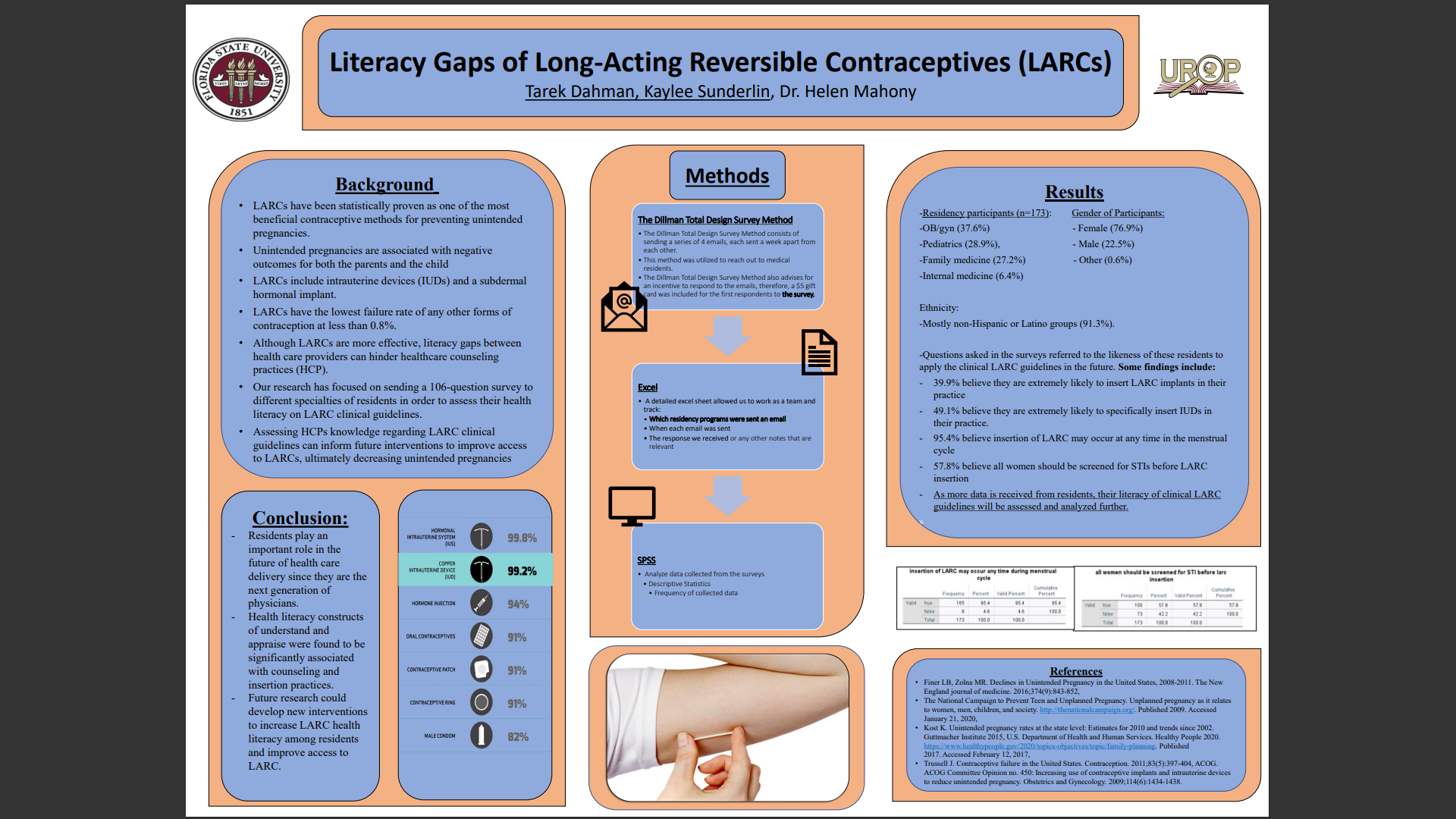Research Symposium
23rd annual Undergraduate Research Symposium, April 6, 2023
Kaylee Sunderlin Poster Session 1: 11:00 am - 12:00 pm/ Poster #404

BIO
My name is Kaylee Sunderlin. I grew up in Wellington, Florida and am studying Public Health with a minor in General Business. I plan on furthering my education at Florida State University's Master of Public Health Program with the hope of pursuing a career in Health Policy.
Literacy Gaps of Long- Acting Reversible Contraceptives (LARCs)
Authors: Kaylee Sunderlin, Helen MahonyStudent Major: Public Health
Mentor: Helen Mahony
Mentor's Department: Public Health Program Mentor's College: College of Social Sciences and Public Policy Co-Presenters: Tarek Dahman
Abstract
The United States has the highest percentage of unintended pregnancies among developed countries at an inflated 45%. Unintended pregnancies have been shown to be correlated to risks including the mother experiencing postpartum depression and the child scoring lower than average on development tests. These unintended pregnancies are typically the result from the misuse or failure of contraceptives. The most commonly used contraceptive methods (oral contraceptive pills and condoms) have around a 10-20% failure rate whereas less commonly used long-active reversible contraceptives (LARCs) have around a 0.8% failure rate. Previous research found that women who obtained and currently use LARCs had experienced multiple barriers before beginning their LARC use. The goal of this study is to examine the most prominent barrier, which was healthcare providers passing recommendations to patients that were not supported by clinical contraceptive guidelines. This barrier is why LARCs are less commonly utilized compared to other, less efficient modes of contraceptives. To gain a better understanding for healthcare providers’ health literacy of contraceptive guidelines, quantitative surveys were sent to hundreds of OB/Gyn, family medicine, internal medicine, and pediatric resident programs across the country. Residents were targeted for this study as they will be the future generation of healthcare providers that will pass recommendations regarding LARCs. These surveys will consist of 30 questions regarding contraceptive guidelines that will take 10-15 minutes to complete. The data received in the surveys will be interpreted through a statistics software (SPSS) in order to assess and compare resident’s understanding of guidelines.
Keywords: Contraceptives, Sexual Health, Health Literacy


